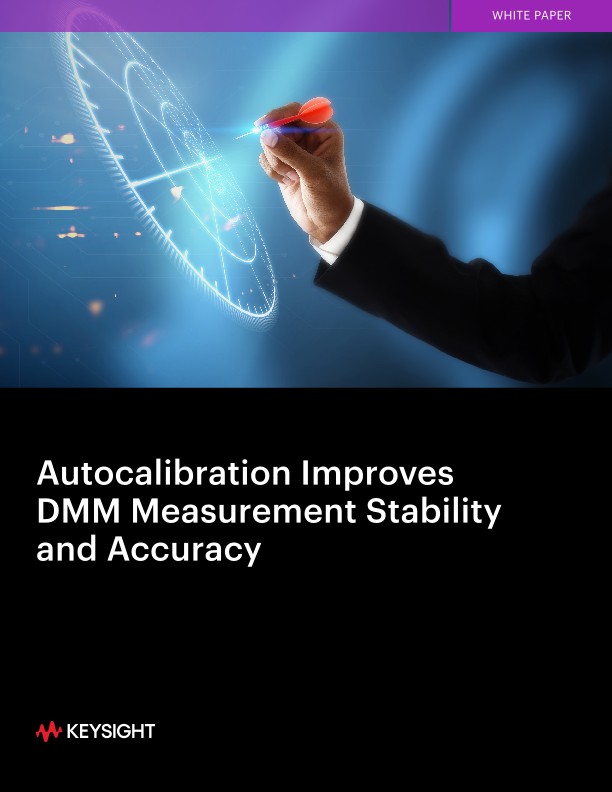
Autocalibration Improves DMM Measurement Stability and Accuracy
White Papers
What Is Autocalibration for a Digital Multimeter?
Autocalibration (ACAL) refers to the ability of a device or system to self-calibrate automatically. For example, every time you power up a printer, the printer typically performs a self-calibration. This calibration involves many internal sensors and a physical reference for the printhead location for the printer to print accurately over time.
Similarly, electronic test and measurement instruments, such as a digital multimeter (DMM), require self-calibration to ensure its measurements are consistently accurate over time including the ambient temperature changes.
Accurate measurements using a benchtop or a system DMM are critical to most applications. However, a point often overlooked is the specification adder for the temperature coefficient (TC). The basic premise of a TC specification is that if you are using your DMM at a temperature that is not the same temperature at which you calibrated the instrument, then you need to add an error to account for the TC specification.
Most DMMs undergo calibration in a temperature-controlled environment, nominally at 23 °C. However, DMMs in real-life environments encounter temperatures that are different from the calibration lab. Learn how modern DMMs can help you minimize the TC specification adder.